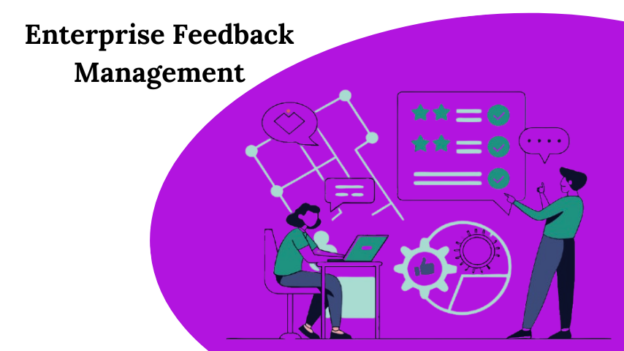In today’s rapidly evolving business landscape, organizations are constantly seeking ways to streamline operations, improve efficiency, and gain a competitive edge. Enterprise management software has emerged as a critical tool for businesses looking to optimize their processes, enhance productivity, and drive strategic decision-making. This comprehensive guide will explore the intricate world of enterprise management software, its types, benefits, and transformative potential for modern businesses.
Understanding Enterprise Management Software
What is Enterprise Management Software?
Enterprise management software is a sophisticated suite of integrated applications designed to help organizations manage and optimize their core business processes. These comprehensive solutions provide a centralized platform that connects various departments, streamlines workflows, and offers real-time insights into business operations.
Key Components of Enterprise Management Software
Enterprise management software typically encompasses several critical business functions:
- Enterprise Resource Planning (ERP)
- Integrates financial management
- Handles human resources
- Manages supply chain operations
- Provides comprehensive business intelligence
- Customer Relationship Management (CRM)
- Tracks customer interactions
- Manages sales pipelines
- Supports marketing campaigns
- Enhances customer service capabilities
- Enterprise Feedback Management (EFM)
- Collects and analyzes customer and employee feedback
- Provides actionable insights
- Supports continuous improvement initiatives
- Helps organizations understand stakeholder perspectives
Benefits of Enterprise Management Software
Operational Efficiency
Enterprise management software offers numerous advantages for businesses:
- Centralized Data Management: Consolidates information from multiple departments
- Real-Time Reporting: Provides instant access to critical business metrics
- Process Automation: Reduces manual tasks and minimizes human error
- Scalable Solutions: Adapts to growing business needs
Strategic Decision Making
By providing comprehensive insights, enterprise management software empowers organizations to:
- Make data-driven decisions
- Identify potential opportunities and challenges
- Optimize resource allocation
- Improve overall business strategy
Types of Enterprise Management Software
1. Integrated Enterprise Platforms
These comprehensive solutions offer end-to-end business management capabilities:
- SAP
- Oracle NetSuite
- Microsoft Dynamics 365
2. Specialized Management Solutions
- Project Management Software
- Human Resource Management Systems
- Supply Chain Management Platforms
- Enterprise Feedback Management Tools
Implementing Enterprise Management Software
Key Considerations
- Assess Organizational Needs
- Evaluate current business processes
- Identify specific pain points
- Determine required features
- Select the Right Solution
- Compare vendor offerings
- Consider scalability
- Evaluate total cost of ownership
- Prepare for Implementation
- Develop a comprehensive implementation strategy
- Train employees
- Create change management plan
Challenges in Enterprise Management Software Adoption
Common Implementation Obstacles
- High initial investment
- Complex integration processes
- Resistance to technological change
- Data migration complexities
Mitigation Strategies
- Conduct thorough cost-benefit analysis
- Choose user-friendly solutions
- Implement robust training programs
- Partner with experienced implementation consultants
The Role of Enterprise Feedback Management
Enterprise feedback management (EFM) has become increasingly crucial in modern business software. By systematically collecting, analyzing, and acting on feedback from customers and employees, organizations can:
- Improve product and service quality
- Enhance customer satisfaction
- Drive continuous improvement
- Build stronger stakeholder relationships
Future Trends in Enterprise Management Software
Emerging Technologies
- Artificial Intelligence Integration
- Predictive analytics
- Intelligent automation
- Advanced decision support systems
- Cloud-Based Solutions
- Enhanced flexibility
- Improved accessibility
- Reduced infrastructure costs
- Mobile-First Approaches
- Remote access capabilities
- Real-time collaboration
- Enhanced user experience
Q1: How much does enterprise management software cost?
Costs vary widely, ranging from a few thousand to hundreds of thousands of dollars, depending on organizational size and specific requirements.
Q2: How long does implementation typically take?
Implementation can take 3-18 months, depending on organizational complexity and chosen solution.
Q3: Can enterprise management software integrate with existing systems?
Most modern solutions offer robust integration capabilities through APIs and custom connectors.
Q4: What is enterprise feedback management?
Enterprise feedback management is a systematic approach to collecting, analyzing, and acting on feedback from various stakeholders to drive organizational improvement.
Q5: Is cloud-based or on-premise software better?
The choice depends on specific organizational needs, security requirements, and budget considerations.
Conclusion
Enterprise management software represents a transformative technology that enables businesses to operate more efficiently, make data-driven decisions, and stay competitive in a rapidly changing business environment. By understanding its components, benefits, and implementation strategies, organizations can leverage these powerful tools to drive growth and innovation.
As technology continues to evolve, enterprise management software will become increasingly intelligent, adaptive, and essential for businesses across all industries. Investing in the right solution and approaching implementation strategically can unlock significant potential for organizational success.
Final Recommendation: Carefully evaluate your organization’s unique needs, consult with experts, and choose a scalable enterprise management software solution that aligns with your strategic objectives.








